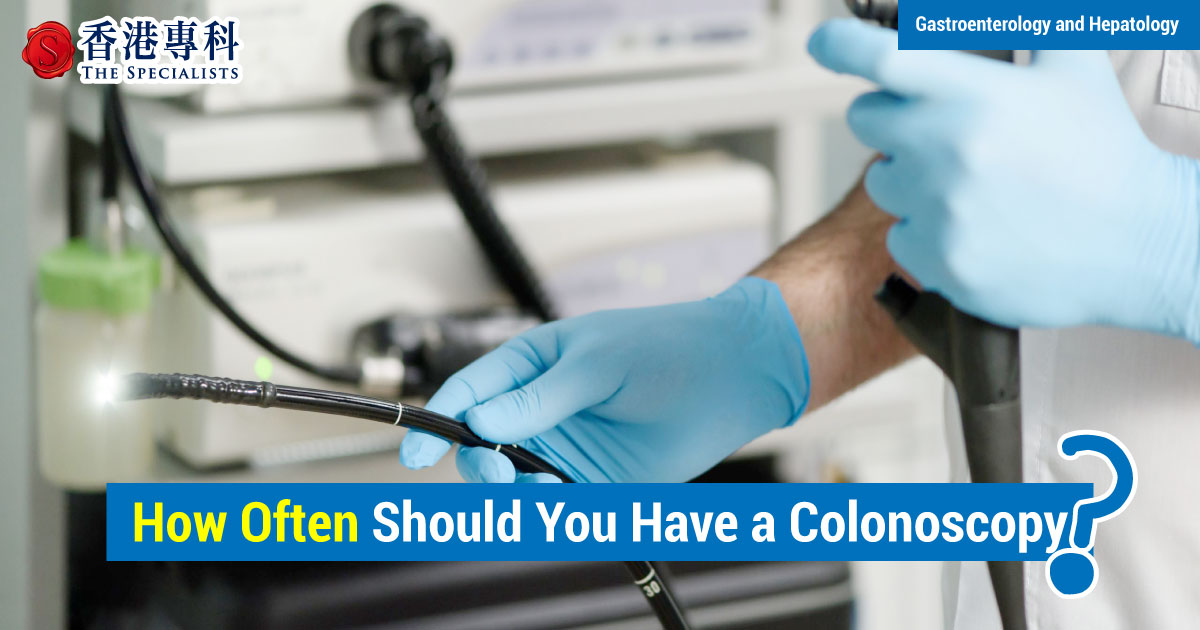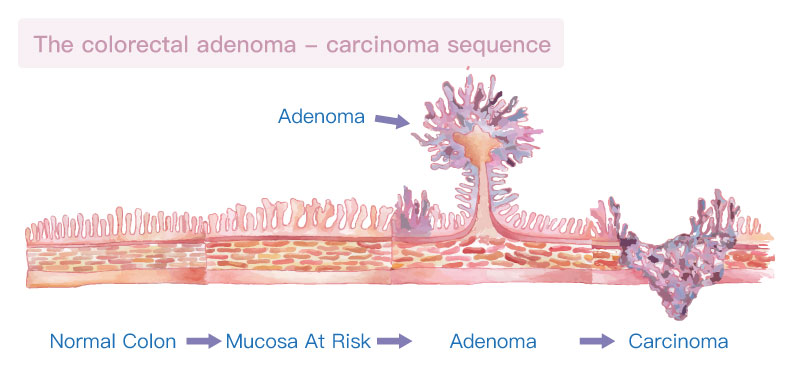How Often Should You Have a Colonoscopy?

Colorectal cancer in Hong Kong
Colorectal cancer is one of the commonest cancers in Hong Kong. In 2018, 35,131 inpatient discharges and deaths were related to the colorectal cancer, which accounted for 15.1% of hospitalization due to all types of cancers. In 2018, 2,314 persons died from colorectal cancer, accounting for 15.9% of all cancer deaths. The crude death rates for male and female were 38.4 and 24.9 per 100,000 population of respective sex.
Risk factors
Like other cancers, the risk of developing colorectal cancer depends on a number of risk factors that varies among individuals. In fact, many of the risk factors for colorectal cancer are linked to our diet and lifestyle habits. If you have any of the factors listed below, it does not mean that you will have colorectal cancer, but it means that your risk of developing colorectal cancer may be higher than the average.
Lifestyle risk factors include:
| - | Low fibre intake, high consumption of red and processed meat | - | Lack of physical activity |
| - | Obesity | - | Alcohol consumption |
| - | Smoking | - | Other risk factors include: men at or above the age of 50 |
| - | Some hereditary bowel diseases, e.g. familial adenomatous polyposis or Lynch Syndrome (formerly known as Hereditary Non-polyposis Colorectal Cancer, HNPCC) | - | A long history of inflammation of the bowel, e.g. ulcerative colitis History of colonic polyp |
| - | History of colonic polyps | - | Family history of colorectal cancer, particularly in close relatives (parents, siblings or children) |
Colorectal cancer prevention with colonoscopy
The colorectal adenoma-carcinoma sequence suggests that a clump of cells form the adenomas polyps that attach to surface of the colon’s mucous membrane, and the adenomas polyps become cancerous. It is believed that environmental factors such as food can alter the way molecules bind to DNA. It takes about 10 years for an adenoma polyp to turn into cancer. Over 90 percent of colorectal cancers begin as a benign tumour and sessile serrated adenoma. Removing the adenomas polyps can help prevent colorectal cancer from developing.

Do I need to get a colonoscopy every year?
The frequency of a colonoscopy depends on the individual and their medical history. Some risk factors, including the inadequate bowel preparation, suspicious symptoms of colorectal cancer, a family history of colorectal cancer, colon polyps, and ulcers found on the lining of the colon that warrant more frequent screening.
- For the high-risk group of colorectal cancer and those who had inadequate bowel preparation in the last examination, it is recommended to see the doctor and get a colonoscopy every 1 to 2 years to avoid any unseen or new polyps;
- For patients with lower risk of colorectal cancer, or those had adequate bowel preparation and a normal result of colonoscopy, they may consider getting another session of colonoscopy in 5 years or more;
- If the patient is not sure about the previous colonoscopy result, he/she is recommended to consult a specialist to receive a suitable colonoscopy follow-up plan.
*The above information is for reference only, please consult your doctor for detail.

 3405 8288
3405 8288
